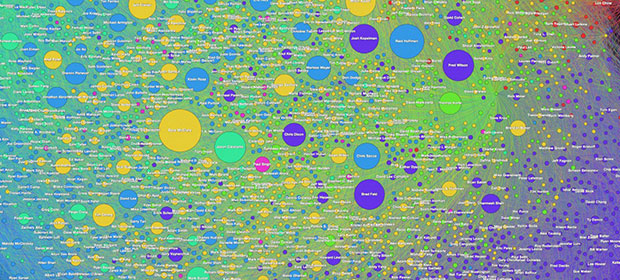"networked platforms for physical world services" entries

The rise of networked platforms for physical world services
A look at the huge economic shift led by software and connectedness.

Request an invitation to Next:Economy, our event aiming to shed light on the transformation in the nature of work now being driven by algorithms, big data, robotics, and the on-demand economy.
One of the themes we’re exploring at the Next:Economy summit is the way that networks trump traditional forms of corporate organization, and how they are changing traditional ways of managing that organization. Uber and Airbnb are textbook examples of this trend. Uber has ambitious plans to manage hundreds of thousands — eventually even millions — of independent drivers with a small core of employees building a technology platform that manages those workers. Airbnb is on track to have more rooms on offer than large hotel chains, with under a thousand employees.
Esko Kilpi beautifully described the power of networks in an essay on Medium, The Future of Firms, reflecting on economist Ronald Coase’s theory of 20th century business organization. He wrote:
The existence of high transaction costs outside firms led to the emergence of the firm as we know it, and management as we know it. … The reverse side of Coase’s argument is as important: if the (transaction) costs of exchanging value in the society at large go down drastically, as is happening today, the form and logic of economic and organizational entities necessarily need to change! The core firm should now be small and agile, with a large network.
The mainstream firm, as we have known it, becomes the more expensive alternative. This is something that Ronald Coase did not see coming. Accordingly, a very different kind of management is needed when coordination can be performed without intermediaries with the help of new technologies. Apps can do now what managers used to do.[Bolding mine.]
Today, we stand on the threshold of an economy where the familiar economic entities are becoming increasingly irrelevant. The Internet and new Internet-based firms, rather than the traditional organizations, are becoming the most efficient means to create and exchange value.